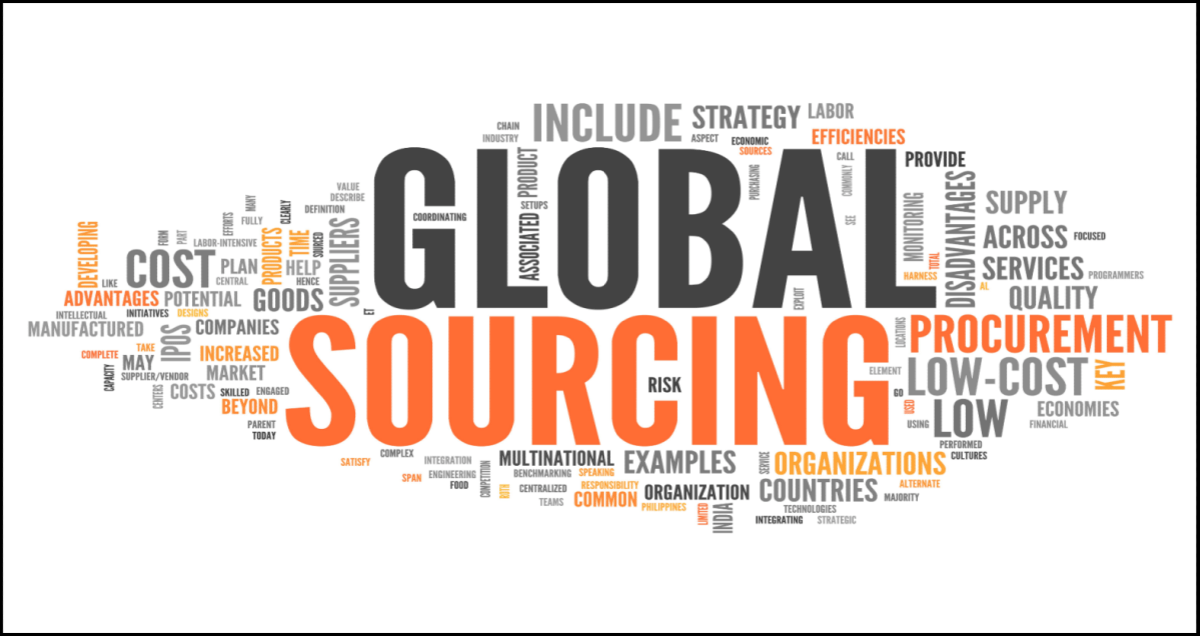~ Managing a myriad of vendors and transactions through a single source ~
“Foresight is not about predicting the future,” said the science fiction author and futurist Karl Schroeder, “it’s about minimising surprise.” Given the unpredictable nature of today’s supply chains, “minimising surprise” may seem like an unrealistic goal — but it needn’t be. Here Keith Kentish, group commercial director at TFC, an AFC Industries company, explains how a global sourcing partner can improve strategic decision-making, including change management.
International manufacturers are reasonably worried about supply chains, including the future effects of geopolitical situations on commodity prices and availability. This is understandable, following a turbulent last five years with COVID, raw material and component shortages, coupled with the ongoing conflict in Eastern Europe.
Despite these genuine concerns and negative headlines, good supply chain networks are now more reliable. Demand for products across all commodities soared in the immediate wake of the COVID-19 pandemic, but more recently, a global slowdown has meant there is more capacity.
Suppliers now have excess stock levels of several C-Class products — examples include small industrial components like fasteners, tooling, consumables and personal protective equipment (PPE). C-Class products are typically considered non-strategic, low in value but high in number, and administratively time-consuming for businesses.
To get a fuller picture of the current status of supply chains, we can look at the stability and continuity of commodity prices. Naturally, buyers worry when prices go up; for instance, it wasn’t long ago that we saw significant increases in steel and stainless steel costs in the fastener market. However, commodity prices have plateaued in many cases, or at least the rate of increase has slowed significantly.
This brings us to global sourcing, the practice of sourcing from the global market for goods and services across geopolitical boundaries. When sourcing manufacturing components globally, a business’ primary focus should be predicting the next curveball — whether that happens to be changing commodity prices or shifting manufacturer-supplier dynamics. To minimise such surprises, resilience and reliance must be the mantras for today’s supply chain professionals. Companies must ensure they are ready to manage any unexpected hurdles that get in the way. But, this is incredibly challenging for businesses managing an extensive, varied portfolio of C-Class products. Let’s examine why.
Fluctuating market levels
Medium- or large-sized manufacturers are rightly focussed on their main business priorities, which typically include optimising production efficiency, improving product quality and new product introduction (NPI) programs. These companies have little time or resources to dedicate to the headache that is sourcing and managing the continued availability of C-Class products.
Let’s say a company sources its C-Class products from 20 different suppliers. What does that mean for the business? The answer is 20 vendor relationships that must be managed, multiple orders to raise, and hundreds of prices to negotiate among fluctuating market levels.
C-Class products like fasteners might be inexpensive, but they are often among the highest-quantity purchases within a manufacturing organisation. There can be dire consequences if a manufacturer does not have C-Class products of the right quality, quantity and price at the right place and time.
So, what can medium- or large-sized manufacturers do to overcome these obstacles? Well, imagine if you could deal with just one reliable source rather than dealing with multiple vendors. This is where a global sourcing partner can change the game.
Removing the “noise”
Let’s talk through an example. One of the world’s largest manufacturers of laboratory products has historically sourced and purchased its C-Class products from various suppliers — but the company wished to save time and resources invested across the products it was buying. To achieve this, it approached TFC to become its global sourcing and vendor managed inventory (VMI) partner.
For this prospective customer, TFC first compiled a list of all its present vendors and the C-Class items it was buying from each. This process identified that several C-Class electronic products could be purchased as comparative brand items elsewhere for reduced costs while maintaining, or in many instances, improving the product quality. Quality is significant for this manufacturer because it supplies products to highly-regulated sectors like the pharmaceutical industry.
For processes like these, TFC audits suppliers around the globe and does so either face-to-face, using a third party or electronically. As part of the audit, the supplier must agree to TFC’s own policies regarding quality and service and ethical behaviours such as sustainability or not using child labour. A global sourcing partner’s expertise is managing a global supply network based on trusted vendor relationships.
But how does this partnership help companies “minimise surprise”? A good example is TFC’s proactive territory research, which means monitoring and benchmarking alternative territories for the supply of products. For instance, if the changing geopolitical situation means it is no longer time- or cost-effective to source parts from a particular country or region, TFC can quickly and efficiently re-align the supply source. Currently, there is real potential in Slovakia, Slovenia, Poland, Turkey and India — all countries that are coming to the fore in producing top-quality C-class components.
On the one hand, proactive territory research may identify an opportunity where the customer could buy better quality products manufactured abroad rather than domestically. On the other, the research might support manufacturers in quickly onshoring or at least nearshoring their manufacturing. Half of the companies recently surveyed by Make UK said they had further plans to boost their UK supply base, with more than ten per cent planning to reduce their reliance on Asian suppliers.
Lastly, a global sourcing partner can help its customers navigate the impacts of import levies. One example is the anti-dumping duty (ADD) applied to Chinese products imported into the European Union (EU). Or there are new regulations like the Carbon Border Adjustment Mechanism (CBAM) that will require importers of certain energy-intensive goods to pay a levy. CBAM is an example of increased producer responsibility, where manufacturers and importers of products bear some responsibility for the environmental impacts of their products throughout their life cycle. It is also possible to protect customers from shifts in currency exchange rates that might otherwise harm their profitability.
The overall picture
You may be thinking, how can a global sourcing partner manage so many vendors and transactions and do so quickly and effectively? It can be managed by combining the skills of an experienced and trained team with the right tools. TFC uses a custom enterprise resource planning (ERP) system coupled with the right business intelligence (BI) reporting software. This makes it possible to look at supplier and supply data across the TFC Group and consider the overall picture with vendor relationship management achieved through a number of key performance indicators (KPIs), including service, quality, pricing and more.
TFC is also unique in that its procurement specialists are from engineering and manufacturing backgrounds. Not only do its specialists understand manufacturers’ C-Class product requirements from first-hand experience, but they also benefit from continued training and personal development — with a goal that, in time, all of TFC’s central team will be qualified to Level 6 in the CIPS Professional Diploma in Procurement and Supply (MCIPS) to give customers the best strategic direction and advice — including in relation to change management.
Going forward, better change management will be crucial for international businesses. They cannot predict the future, but they can plan for all eventualities. With a global sourcing partner like TFC, it is certainly possible to minimise surprise.


